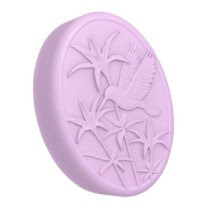Homemade soap making is easy when you have the right tools, equipment and ingredients. Soap making supplies start with the basics, but there are also plenty of additional products available to help your soap making projects more interesting.
Basic soap making supplies - essential tools and equipment:
? A good set of weighing scales. These should be accurate and reliable, and be cable of measuring small amounts.
? Heat resistant pitcher for measuring your soap making ingredients. This must be capable of withstanding high temperatures, so a good tip is to look for a dishwasher safe pitcher. The container needs to be at least 2 quart capacity in either glass or plastic for soap making.
? Supplies of stainless steel spoons, or a few small cups for measuring oils and other soap making additives.
? The soap making pot, with lid. Ideally this will hold at least 8 quarts and should be stainless steel or enamel, but smaller soap pots can be used for lower quantities of soap making ingredients.
? Plastic or wooden stick for stirring the lye soap mixture. Your stick or spoon must have a long enough handle to safely stir the soap, making sure that your hands don't reach too far into the pot.
? Stainless steel thermometer. This is needed to accurately gauge the temperature of your soap making solution.
? A soap mold to pour your soap making mixture into, to let it set.
? Safety goggles and rubber gloves.
Other handy soap making supplies include a stick blender, which makes the soap making process a bit faster, and litmus paper to test the pH of your soap.
Soap making supplies - main ingredients:
Lye - or sodium hydroxide is essential for soap making. Supplies of Red Devil Lye can be found at grocery stores, but may be behind the counter, so be sure to ask if you can't find it on the shelves.
Water - for soap making is best if it's distilled water, bottled water or even rain water supplies to keep it as pure as possible.
Fats and oils - the most common fats used in soap making are pork lard and beef tallow, but vegetable fat can also be used. Oils such as coconut oil or olive oil are added to give the soap its moisturizing properties as well as making it lather. Supplies of fats and oils are easily sourced on your supermarket shelves.
Fragrance oils - added in to the soap making process to give your soap a pleasant smell. Essential oils are also a popular choice in soap making recipes.
These are all the tools and ingredients you need to start making your own homemade soap. Soap making supplies are easy to find locally, but there are also many products available online, including starter kits for beginners.
Marie Ackland - Soap making was originally a hobby of mine that gave me great pleasure, theres something quite satisfying about creating from scratch a beautifully scented bar of soap.
It then turned into a full time passion, creating wonderful soap for family and friends to enjoy. When a friend surgested I take some along to a local craft fair, which I did and from that day on I never looked back. I now have a great soap business which makes a healthy profit and gives me great satisfaction.
So now 20 years on from my first batch I love to teach the art of soap making. It can be frustrating at first but if you learn the fundamentals and put into practice my methods you WILL have great soap every time.
Learn To Make The Most Amazing Soap Today - Step By Step Guide : http://www.soapmakinglessons.com/
Article Source: http://EzineArticles.com/?expert=Marie_Ackland



